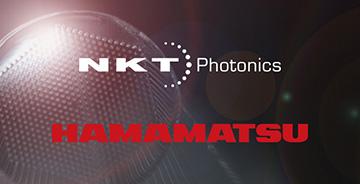
[Image: Getty Images]
Hamamatsu Photonics, a Japan-based supplier of a wide range of optical components and systems, announced that it has completed its acquisition of Denmark-based NKT Photonics, which makes a variety of laser and fiber optic systems including supercontinuum lasers, fiber lasers and ultrafast systems. The acquisition, effective 1 June, ended up at a price tag of approximately €247 million (US$268 million), equivalent to ¥42.1 billion.
A long Danish saga
Completion of the NKT Photonics acquisition marks the end of a long road for Hamamatsu, with twists and turns worthy of an old Scandinavian saga. The Japanese company announced nearly two years ago, on 24 June 2022, that it intended to purchase the Danish laser maker for consideration of €205 million (roughly ¥29.5 billion, or US$216 million, at then-current exchange rates).
In its filing at that time, Hamamatsu noted that it already had a business relationship with NKT Photonics centered around the latter’s fiber laser technology. It also expressed interest in a number of specific NKT product lines, including supercontinuum lasers, single-frequency fiber lasers and ultrafast fiber lasers, for which it saw complements with Hamamatsu’s existing semiconductor diode laser operation and opportunities to extend into new markets.
Completion of the NKT Photonics acquisition marks the end of a long road for Hamamatsu.
Unfortunately, less than a year after being proposed, the planned merger ran aground on geopolitical shoals. After receiving approvals for the deal from authorities in Germany, the United Kingdom and the United States, Hamamatsu was served notice on 2 May 2023 by the government of NKT Photonics’ home country, Denmark, that it was rejecting the application.
Specifically, the Danish Ministry for Industry, Business, and Financial Affairs declared that it was denying the merger based on the provisions of the Danish Investment Screening Act. That statute allows the government to scotch any overseas deal that it sees as a threat to “national security or public order” in Denmark.
Undaunted, Hamamatsu immediately started over with the Danish government, re-submitting its bid on 20 July 2023. The revised bid was reviewed by multiple government ministries in Denmark. While it is unclear exactly why, the second try proved more convincing than the first; on 6 May 2024, the Danish government notified Hamamatsu that the merger was approved. The deal’s completion swiftly followed at the end of May.
Modified terms

[Image: Hamamatsu Photonics]
With the merger’s completion, NKT Photonics has become a subsidiary of an existing Hamamatsu business unit, Photonics Management Europe (PME). In euro terms, the final deal looks considerably pricier for Hamamatsu than the one originally proposed, with a total deal value more than 20% higher. Hamamatsu blamed the price hike on “an increase in the amount of net debt” needed to finalize the acquisition.
Notwithstanding the deal’s long run-up and the ultimate increase in ticket price, Hamamatsu—which booked revenues of ¥221.4 billion (US$1.48 billion) in the fiscal year ended September 2023—seems satisfied with the outcome.
In a press release accompanying announcement of the deal’s completion, the company highlighted opportunities to combine NKT Photonics’ laser and fiber products into Hamamatsu’s existing detector and camera products to provide “unique solutions.” The Japanese firm specifically noted opportunities in the emerging quantum-computing market; in metrology systems for semiconductor manufacture; and in hyperspectral imaging, where Hamamatsu believes NKT Photonics’ SuperK supercontinuum laser could prove a strong contender as a broadband light source with good thermal properties.
“With this acquisition, Hamamatsu Photonics Group now possesses a very broad range of technologies within light sources, lasers and detectors,” Hamamatsu wrote in the release. “The combination of NKT Photonics and Hamamatsu Photonics will help us to drive our technology to the next level.”

